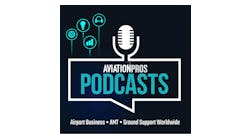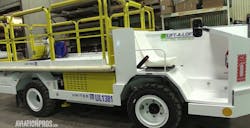The government is studying whether it can allow airline passengers to carry small amounts of now-banned liquids onto airplanes, the Transportation Security Administration said Thursday.
TSA spokeswoman Ellen Howe said there is no timetable for easing a ban on liquids and gels that took effect Aug. 10 after authorities foiled an alleged plan to attack U.S.-bound planes with liquid bombs. She said investigators are studying all liquid explosives to determine whether passengers could be allowed to carry on items such as water and toothpaste while maintaining security.
Kip Hawley, the head of TSA, said the agency wants to find a way to meet the needs of travelers while keeping them safe from the threat of explosives.
"We understand the business traveler is very anxious to be able to carry on enough (items) for an overnight trip," Hawley said. "We have to ask ourselves, is it possible to design a security system that does allow the business traveler, male and female, to routinely do overnight business trips using carry-on?"
Neal Langerman, a chemist with the American Chemistry Council, said it is "good risk management" and "pretty straightforward" for investigators to study the 25 or so liquid explosives and determine how much would be needed to crash or endanger an airplane.
Langerman said an analysis would take several weeks and probably result in air travelers being allowed to carry small amounts of liquids and gels.
Bill Connors of the National Business Travel Association said, "Any loosening of the ban would be welcome."
Air travelers have virtually stopped carrying bags on planes and are checking 20% more luggage, which has caused longer lines at some check-in counters and longer waits at baggage carousels.
The increase also strains the TSA system for screening checked luggage for bombs and could pressure screeners to cut corners, Hawley said. "There's nothing out there that says we've got to be worried about it. ... It's just a general concern," he said.
Airline passengers may carry small amounts of liquid prescription medicines, baby formula and breast milk and eye-care products.
Allowing passengers to carry some items that are now banned would help security by reducing the amount of checked luggage, Hawley said.





